Aromatherapy
Aromatherapy is a treatment in which natural plant extracts are used to promote health and well-being.
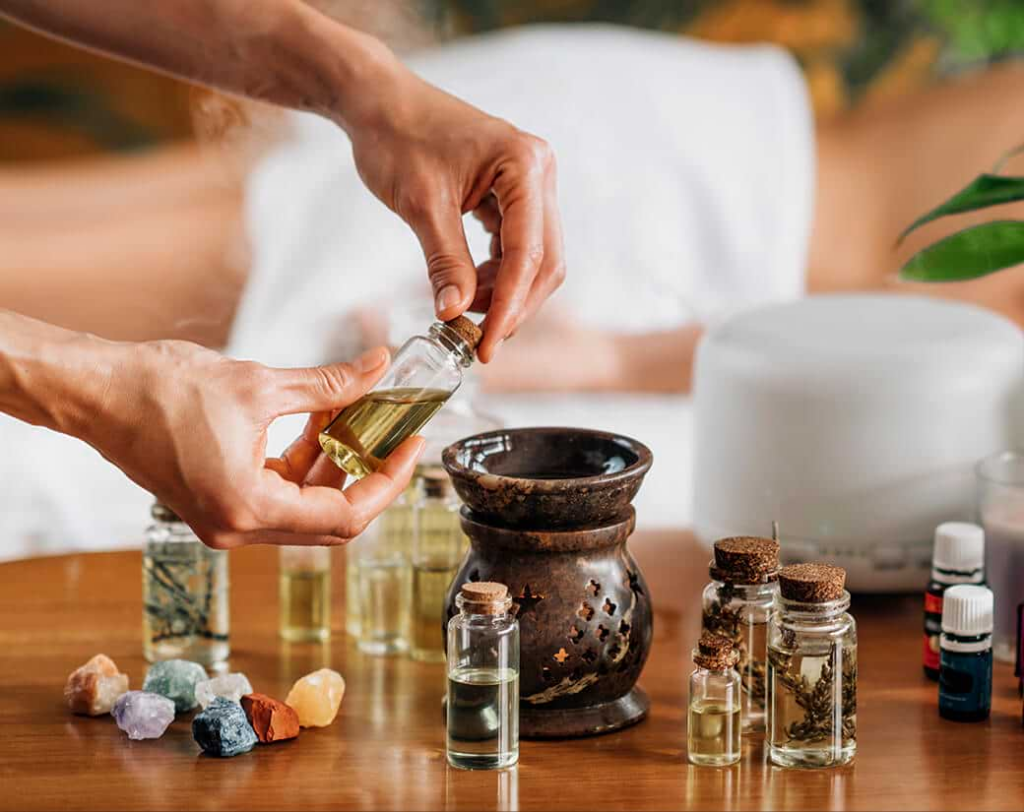
Aromatherapy has been gaining much popularity. In this therapy, essential oils and plant extracts are used to initiate healing. As health enthusiasts are on the lookout for natural solutions, it is necessary to weigh both the pros and cons of this therapy. So, go through this blog post to decide if aromatherapy is the right choice for you.
What Are The Pros of Aromatherapy?
Aromatherapy can promote relaxation, reduce stress and anxiety, improve mood, and enhance sleep quality. It may also help alleviate symptoms of certain conditions, such as headaches and digestive issues, and support overall well-being through the use of essential oils.
One reason why people engage in aromatherapies is its potential to make them feel more relaxed and reduce stress levels. Some specific essential oils, including lavender, chamomile or ylang-ylang, have got a calming effect on the nervous system. Inhaling them or applying them onto one’s skin could lead to low cortisol rates that decrease heart rate.
Certain essential oils are mood enhancers. Citrus oils like lemon, orange, and grapefruit are known to have an uplifting effect; peppermint and rosemary promote alertness and mental clarity. Therefore, scents that stimulate the sense of smell will lead to the release of neurotransmitters such as dopamine and serotonin, which regulate feelings and moods.
Aromatherapy has been used to treat pain. For instance, oils including eucalyptus, ginger or even peppermint could possess inflammatory properties that can help with muscle aches, arthritis pains and headache. Aromatherapy enhances total pain-relieving effects when combined with massage or other complementary therapies.
How Does Aromatherapy Help Physical Health?
Aromatherapy can support physical health by reducing pain, alleviating headaches, improving sleep, and boosting the immune system. Essential oils may also help with respiratory issues, digestive problems, and muscle tension, contributing to overall physical well-being and comfort.
If you have insomnia or poor sleep quality, aromatherapy is a natural and non-invasive solution for you. Among many others lavender has been extensively studied for its efficiency regarding sleep promotion. Many of those who use Lavender essential oil before bed have reported having better sleep quality.
Some essential oils (such as tea tree oil, eucalyptus oil, or oregano) can be used to support the immune system due to their antimicrobial properties. Although there is a need for more research about how effective they might be, many people consider them useful in maintaining general health and preventing diseases.
Some essential oils are proven to improve skin health if correctly diluted and applied topically. For example Tea tree oil comprises anti-microbial properties against acne causing bacteria. On the other side frankincense is considered one of the best anti-aging agents promoting elasticity and reducing fine line appearances.
What Are The Cons Of Aromatherapy?
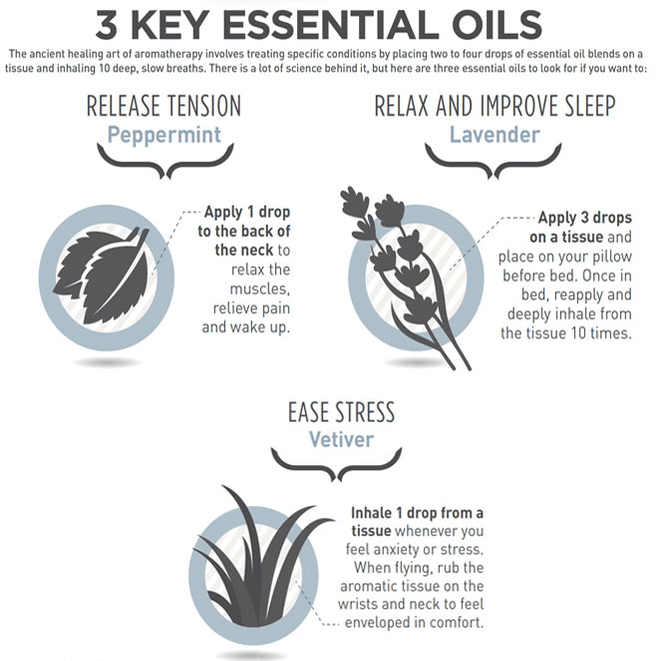
Cons of aromatherapy include potential allergic reactions or skin irritation from essential oils, limited scientific evidence for some health claims, and possible interactions with medications. Overuse or improper application of oils can also lead to adverse effects or diminished benefits.
The natural essential oils happens to be highly concentrated and, therefore, may lead to irritations or allergies in some people. It is important to first dilute the essential oils properly and do a patch test before using it. Citrus oils can increase photosensitivity, which means your skin may get easily burned by the sun.
Ingesting certain oils or using them undiluted on the skin can have harmful effects. Essential oils, if ingested wrongly, can cause some adverse reactions. Wintergreen and eucalyptus are just but a few examples of oils that might even be life-threatening when swallowed by children and animals.
What Are The Scientific Limitations of Aromatherapy?
Scientific limitations of aromatherapy include limited high-quality research, variability in essential oil quality, and the subjective nature of its effects. Additionally, many studies lack rigorous controls, making it challenging to draw definitive conclusions about efficacy and safety.
This lack of regulation leads to inconsistencies in product quality and purity within the aromatherapy industry. There are no industry standard regulations, making it very difficult for consumers to access high-quality, unadulterated essential oils.
Although many people testify about positive outcomes from aromatherapy, there is limited scientific proof regarding its efficacy in treating particular conditions. More comprehensive clinical research works must be carried out with regard to aromatherapy.
The activity of certain medications can be affected by some essential oils, leading to their decreased efficacy or side effects. For instance, ingested oils such as eucalyptus and peppermint may hinder specific medications. Before resorting to aromatherapy, it is important to seek advice from medical professionals, especially if you have underlying health issues.
Expensive high-quality essential oils exist especially those derived from rare plants. The cost involved in buying diffusers, carrier oils, and other accessories can make aromatherapy an expensive practice for some individuals.
What does aromatherapy do to the brain?
Aromatherapy affects the brain by stimulating the olfactory system, which influences the limbic system, responsible for emotions and memory. Essential oils can enhance mood, reduce stress, and improve cognitive function by interacting with these brain regions.
Aroma therapy excites a part of your brain called the limbic system, which deals with feelings, behavior, and long-term memory. Essential chemicals inside these aromatic extracts could affect mood, state of stress, and cognitive functioning by inducing calmness, reducing anxiety, and enhancing psychological fitness.
So aromatherapy might be truly useful to improve both mental and physical health. However it is always advisable to proceed with caution if you suffer from specific health issues.
Where to apply essential oils for stress?
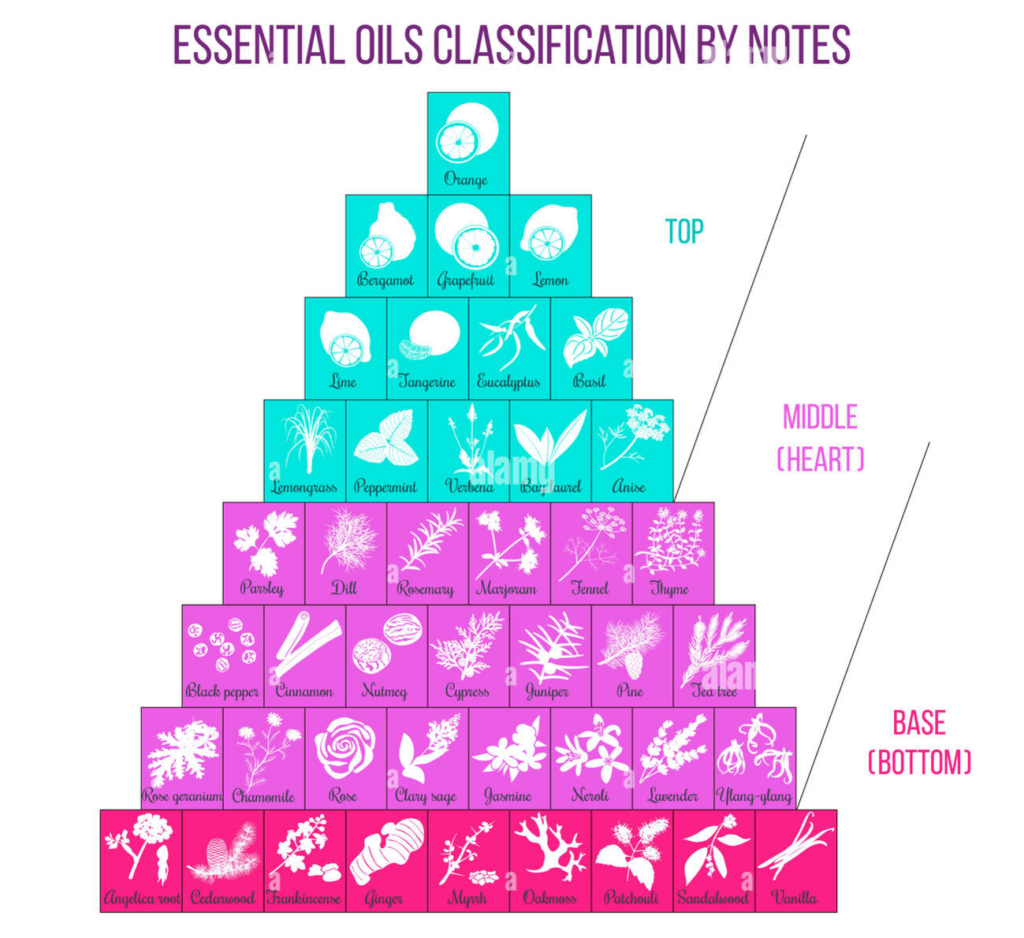
For stress relief, apply essential oils to pulse points such as wrists, temples, and behind the ears. You can also use them in a diffuser, add a few drops to a bath, or gently massage into the neck and shoulders.
Apply the essential oil on your temples,wrist, back of earlobes and back of neck area.All these areas have thin skin so they will easily absorb the oil. Inhaling it through a diffuser or putting a few drops on your hanky can also work well.
For many -people essential oils are the go to solution in moments of intense stress. However do remember that this therapy might not work the same for everybody. So do have realistic expectations.
What oils are good for stress and anxiety?
Essential oils beneficial for stress and anxiety include lavender, chamomile, bergamot, ylang-ylang, and frankincense. These oils are known for their calming and soothing properties, helping to reduce stress levels and promote a sense of relaxation and well-being.
Lavender, chamomile, bergamot, and ylang-ylang are efficient essential oils that can help relieve stress and anxiety. These substances have soothing features which enable them to reduce stress hormones levels, create mood elevation and promote relaxation. Diffusers may be used along with oils into bath water or applied topically with carrier oil.
However, do ensure that you are using top quality essential oils for top-notch benefits. Try to watchout for bad quality essential oils sold in the market.
Where to apply peppermint oil for anxiety?
Apply peppermint oil for anxiety to pulse points such as the wrists and temples. You can also place a drop on your chest or behind the ears. Diluting the oil with a carrier oil before application is recommended.
The temples, back of the neck, and wrists are good areas to apply peppermint oil in order to reduce anxiety. Inhaling the aroma directly from the bottle or through a diffuser can be beneficial. One should dilute it with a carrier oil before applying it to the skin to avoid skin irritation.
If you have nay confusion regarding how to use it do consult a professional therapist. They can help you find the best quality oil and tell you where should you exactly apply the oil to reduce stress.
Conclusion
Aromatherapy has potential benefits such as stress reduction and improved sleep quality. Nevertheless, people should be careful when dealing with this technique and consider its limits. You must know both the pros and cons before deciding on introducing aromatherapy into your healthy regime. Seek personalized advice from registered aromatherapists or other medical practitioners.
References
Aromatherapy
Aromatherapy is a treatment in which natural plant extracts are used to promote health and well-being.
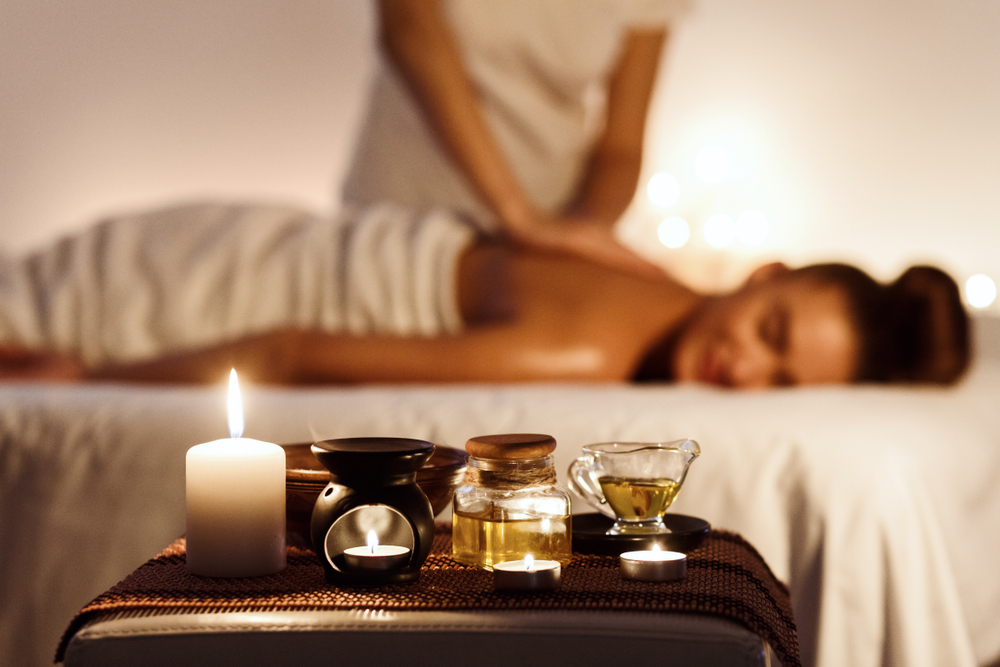
Aromatherapy is the use of essential oils to improve physical and emotional health. The popularity of this profession has increased as people look for natural ways to enhance their quality of life. So, do aromatherapists earn good money? In this post, we will talk about how much an aromatherapist can make and which factors affect their income.
How much do aromatherapists earn annually?
Aromatherapists typically earn between $30,000 and $60,000 per year, depending on experience, location, and clientele.
The annual salaries of aromatherapists vary from $30,000 to $60,000, although for a variety of reasons, these figures can be very variable. Geography is very important; the largest cities have higher salaries because of the demand and cost of living. It also depends on the experience; experienced practitioners who build a following are able to increase their rates over time. Those working alone could have a greater potential for earning more, according to their pricing and business sense, than those employed in spas or wellness centers.
What factors influence an aromatherapist's salary?
An aromatherapist’s salary is influenced by factors such as education level, certifications, experience, geographical location, and clientele.
An aromatherapist’s salary will be influenced by a number of factors. Educational background and certifications can increase credibility, which would translate into better fees. Experience is another factor, and more experienced therapists can receive more per therapy session.
Geographical location may impact earnings in such a way that generally speaking, urban areas receive better pay due to the increased cost of living. The next aspect is having a large, loyal clientele. This, again, can bring about better-earning potential since both a large client base and decent client retention are directly related to the successful running of an aromatherapy clinic.
Are there growth opportunities in aromatherapy careers?
Yes, aromatherapy careers offer growth opportunities through specialization, advanced certifications, and business expansion.
Aromatherapy careers have a lot of room for growth. A degree in clinical aromatherapy or the formulation of essential oil products adds new revenue streams and attracts more clients to the practitioner. For the therapist, advanced certifications in specific techniques or fields of aromatherapy open a path toward greater marketability and earning power. Expanding one’s business, such as opening a wellness center, instructing workshops, or even creating a line of branded products, opens further avenues toward career and financial growth for the therapist.
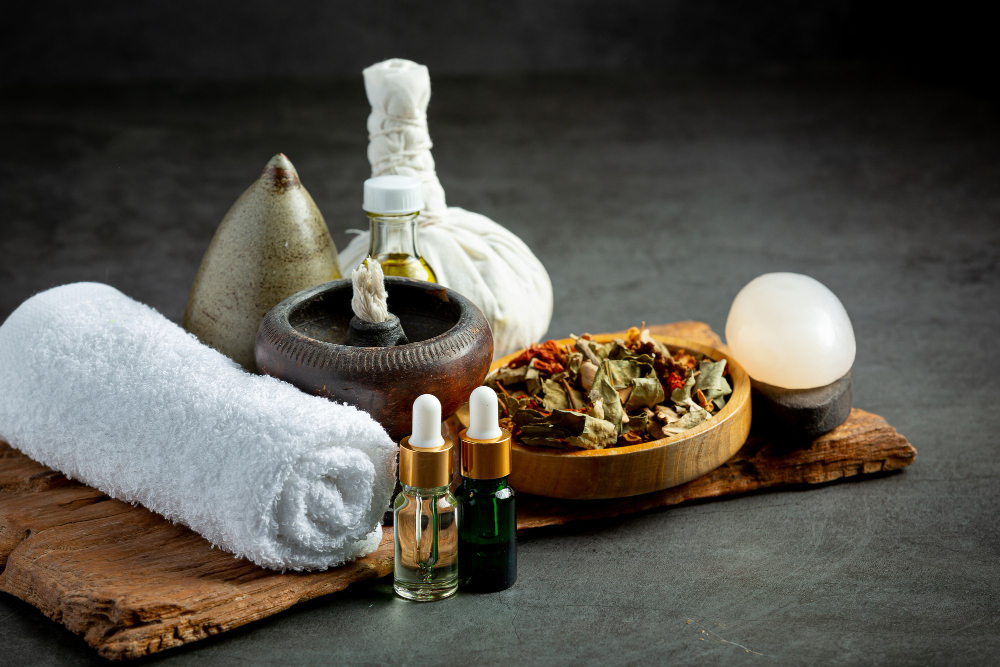
How does location affect aromatherapist earnings?
Location significantly affects aromatherapist earnings, with urban areas typically offering higher pay due to higher demand and cost of living.
The location often determines how much money an aromatherapist is going to make. It is usually found that cities can afford a higher salary due to the increased demand for wellness services and the overall higher cost of living. Therapists working in metropolitan regions also have the advantage of more traffic and, thus, networking opportunities. On the other hand, rural areas would pay less but might have less competition and lower overheads, both of which affect overall earnings.
What skills enhance an aromatherapist's earning potential?
Skills such as advanced aromatherapy techniques, business acumen, marketing, client communication, and product development can enhance an aromatherapist’s earning potential.
An aromatherapist can increase earning potential by developing a variety of skills beyond the basics in the field. This base of advanced knowledge of specialized therapeutic techniques or essential oil applications will support higher fees for service. Business skills, including marketing and communicating with clients, are significant in gaining clients and maintaining them. In addition, product development skills provide the means to sell oils and wellness products to augment other revenues and thus increase total income.
Can aromatherapy be combined with other professions?
Yes, aromatherapy can be effectively combined with professions like massage therapy, yoga instruction, and holistic health coaching.
Aromatherapy can be successfully combined with other wellness professions to enhance services and increase earnings. Integrating aromatherapy with massage therapy, yoga instruction, or holistic health coaching allows a broader range of care for clients. It brings in not only the potential for additional services but also a new clientele base looking toward holistic wellness. By combining skills, there could also be an increase in customer satisfaction and, therefore, more revenue from diversified service packages and collaborative opportunities with other health professionals.
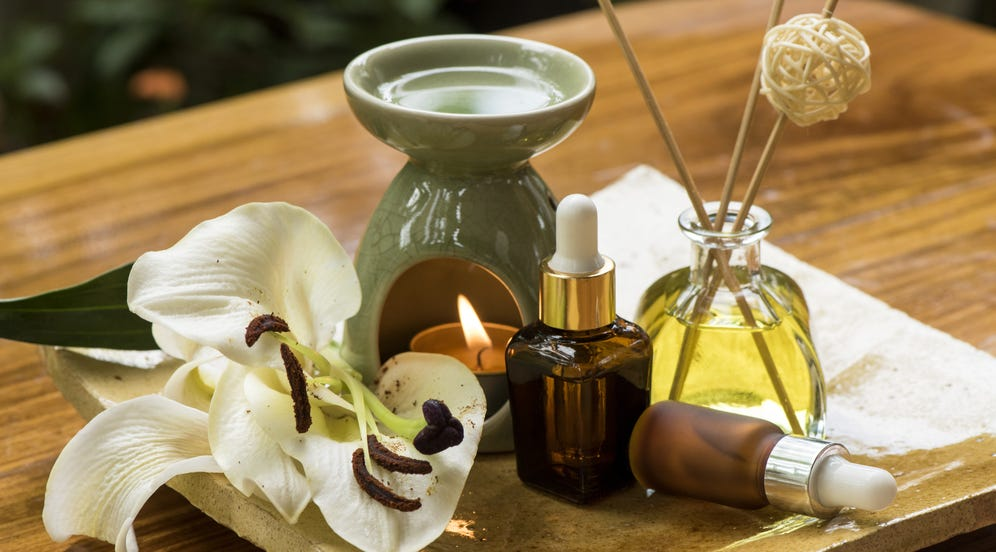
What is the job outlook for aromatherapists?
The job outlook for aromatherapists is positive, with increasing interest in natural health and wellness driving demand.
The prospects for aromatherapists are quite encouraging as the interest in natural and holistic health practice grows. Given the persistence of the trend of more and more people seeking out alternatives to traditional medical and health therapies, the demand for properly qualified and accredited aromatherapists is sure to grow. The adoption of aromatherapy into the mainstream concept of wellness and healthcare also lends itself to a very encouraging forecast for the profession. Aromatherapists who stay up-to-date with new developments in the field of aromatherapy and further their education can and will meet emerging opportunities and growing demands from clients.
What certifications boost an aromatherapist's income?
Certifications from recognized bodies like the National Association for Holistic Aromatherapy (NAHA) or the Alliance of International Aromatherapists (AIA) can boost income.
Licenses from known associations, such as the National Association for Holistic Aromatherapy or the Alliance of International Aromatherapists, can greatly increase the salary of an aromatherapist. Licenses respect and reflect an advanced level of knowledge and professionalism, which justifies higher prices for the services of therapists. Advanced certifications in such areas as clinical aromatherapy or the chemistry of essential oils also raise the level of credibility among clients and increase the number of customers coming to the therapist, therefore increasing earning potential.
How do aromatherapists market their services?
Aromatherapists market their services through social media, websites, networking events, and workshops.
There are different ways in which aromatherapists can market their services effectively. Having an online presence through social media and personal websites helps immensely in reaching potential clients. One can network at wellness events or teach workshops, gaining exposure that brings in new clients. Introductory sessions and educational works help engage potential clients, thus building a reputation to drive more business and increase the overall income.
Conclusion
To sum it all up, there are several things that need consideration when thinking about making a career out of aromatherapy, including certification requirements, demand levels, and investment into further training opportunities, but given these points, if someone truly loves helping others with their health, then yes this could very well turn into quite a lucrative profession indeed!
References
Aromatherapy
Aromatherapy is a treatment in which natural plant extracts are used to promote health and well-being.
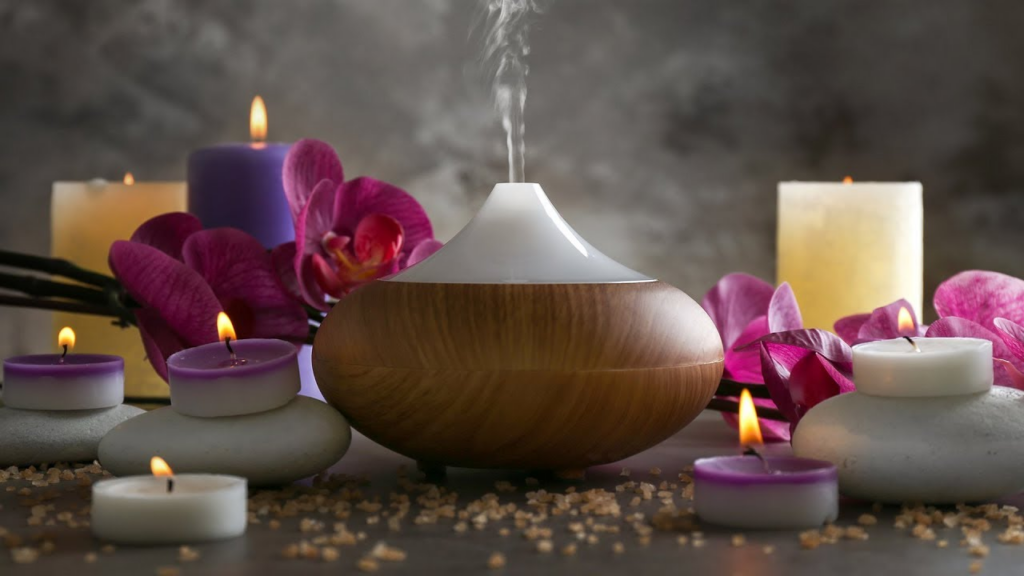
In a society filled with stressors, it can be hard to find peace. This is where aromatherapy comes into play. Aromatherapy is an ancient healing technique that uses plant extracts to promote health and well-being. It has become popular as a calming antidote for the fast pace of modern life.
What are the main responsibilities of an aromatherapist?
The main responsibilities of an aromatherapist are to blend the essential oils to address clients’ physical and emotional concerns and conduct consultations to understand individual needs.
An aromatherapist will choose the appropriate oils to be used therapeutically and instruct clients in their proper application for relaxation, easing of pain, and mental well-being. The safe practice and knowledge with regards to the properties of essential oils are very necessary. They must also teach clients the benefits and limitations of aromatherapy and clearly instruct on safe use.
They will often maintain client records for the purpose of monitoring progress and editing treatment plans as appropriate. Occasionally, they may also collaborate with other health care professionals to offer an all-inclusive approach to wellness. In order to provide the best care, they must remain current with research and trends in aromatherapy.
How does an aromatherapist select essential oils for clients?
An aromatherapist selects essential oils based on a client’s symptoms, preferences, and medical history, considering each oil’s properties and potential interactions. They may use blends for holistic benefits, focusing on scent and therapeutic effects.
While choosing the oils, an aromatherapist will consider his or her emotional state, skin type, and specific health concerns. The knowledge of chemistry, safety aspects, and dilution methods will guide their choice to ensure safe and effective treatments. Many aromatherapists do patch tests in case of allergic reactions to any of these oils and balance the blends if necessary for better therapeutic results. They are continuous students of new oils and methods so that they can offer current and effective solutions for each particular need.
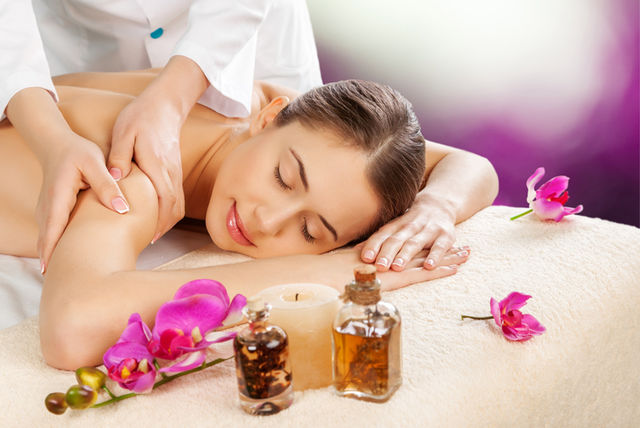
What qualifications are required to become an aromatherapist?
The qualifications to become an aromatherapist are, individuals need training in anatomy, physiology, essential oil chemistry, and application methods. Many pursue certifications from accredited programs, which provide foundational knowledge and practical skills. Some regions require professional registration or adherence to specific standards for practicing safely and ethically.
These certifications ensure that aromatherapists have knowledge about the safety and efficiency of oils, as well as the skill of consultation with clients and the art of treatment design. Most of the programs offer hands-on experience in techniques of blending and case studies. Continuing professional development is provided through workshops and courses, which allow practitioners to stay current in terms of compliance with industry standards and new research into aromatherapy applications.
How do aromatherapists ensure client safety during treatment?
Aromatherapists ensure client safety by conducting thorough consultations to assess allergies, sensitivities, and medical conditions. They use proper dilution ratios and test oils on a small skin area before use.
Continuing education regarding oil characteristics and interactions keeps them safe from potential side effects. By keeping themselves updated on the contraindications and side effects, aromatherapists safeguard the customer against any hurt. They might employ questionnaires for clients so that small details about health are taken from them, whereby treatments become tailor-made. They record the reactions of the client during sessions and adjust the sessions accordingly to ensure that all is going well and safely.
What tools and equipment do aromatherapists commonly use?
The tools and equipment aromatherapists commonly use are essential oil diffusers, carrier oils, mixing bowls, and storage bottles. They may also utilize massage tables, towels, and application tools like rollerballs.
These tools will mix and dispense the oils as well as provide an environment that will calm and help to soothe the comfort of the client. Other accessories like inhalers or even heated stones may be used to focus the treatments in some of the therapy sessions. Cleaning and sanitizing the equipment is very important for hygiene and safety. A good aromatherapist will also ensure that they invest in good quality equipment to achieve the best results and promote comfort for the client during their sessions.
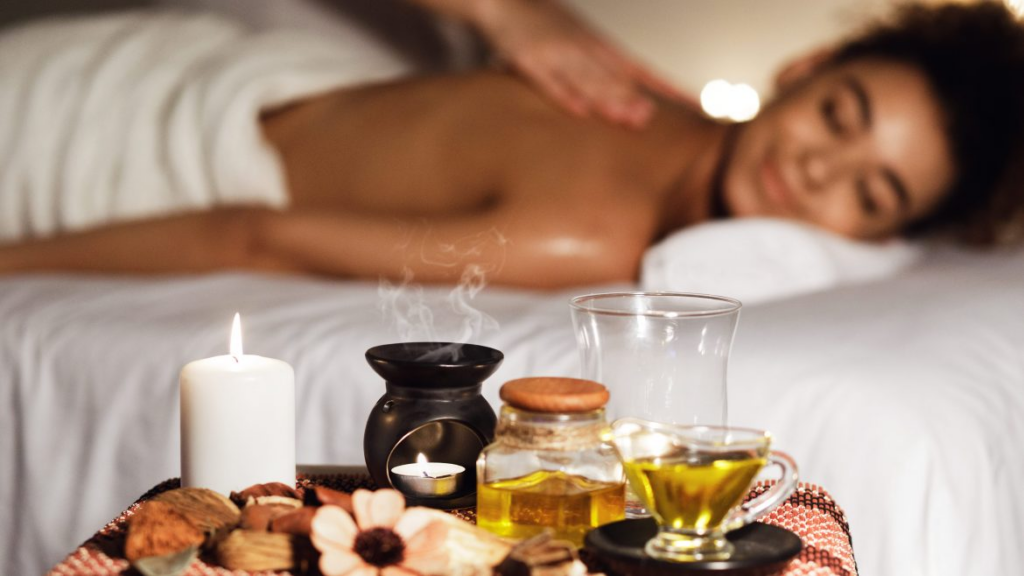
How do aromatherapists incorporate aromatherapy into wellness plans?
Aromatherapists incorporate aromatherapy into wellness plans by designing personalized treatment protocols and combining essential oils with other therapies like massage or meditation.
They may give advice on daily routines, with recommendations of certain oils to be used at home for stress relief, sleep, and emotional balance as part of one’s holistic health strategy. In designing holistic plans, they keep in mind the lifestyle, preferences, and goals of health that the client has. Follow-ups are done regularly to check on effectiveness and relevance to the changing needs of the client. Such a holistic approach secures lasting benefits beyond individual sessions.
What are the benefits of consulting an aromatherapist?
The benefits of Consulting an aromatherapist offers personalized care, addressing specific health concerns through tailored essential oil blends. Benefits include stress reduction, improved sleep, and relief from pain and anxiety. Aromatherapists provide expert guidance on safe, effective use, enhancing physical and emotional well-being through natural, holistic methods.
Aromatherapists bring a very unique perspective to the client, putting together traditional healing practices with modern science to promote wellness. Aromatherapists are able to help clients wend their way through the maze of how to effectively use essential oils while providing education with support toward their long-term health goals. Only such kinds of individual approaches will give maximum benefits of aromatherapy to clients.
The Key Takeaway
Aromatherapy is a soft but powerful method for improving overall health and well-being. With the help of trained aromatherapists it becomes possible to unleash all potentials contained within essential oils thereby resulting in a profound sense of wellness. Whether you want stress relief, better sleep or pain management, these needs can always be met through personalizing therapy plans based on individual health requirements.
